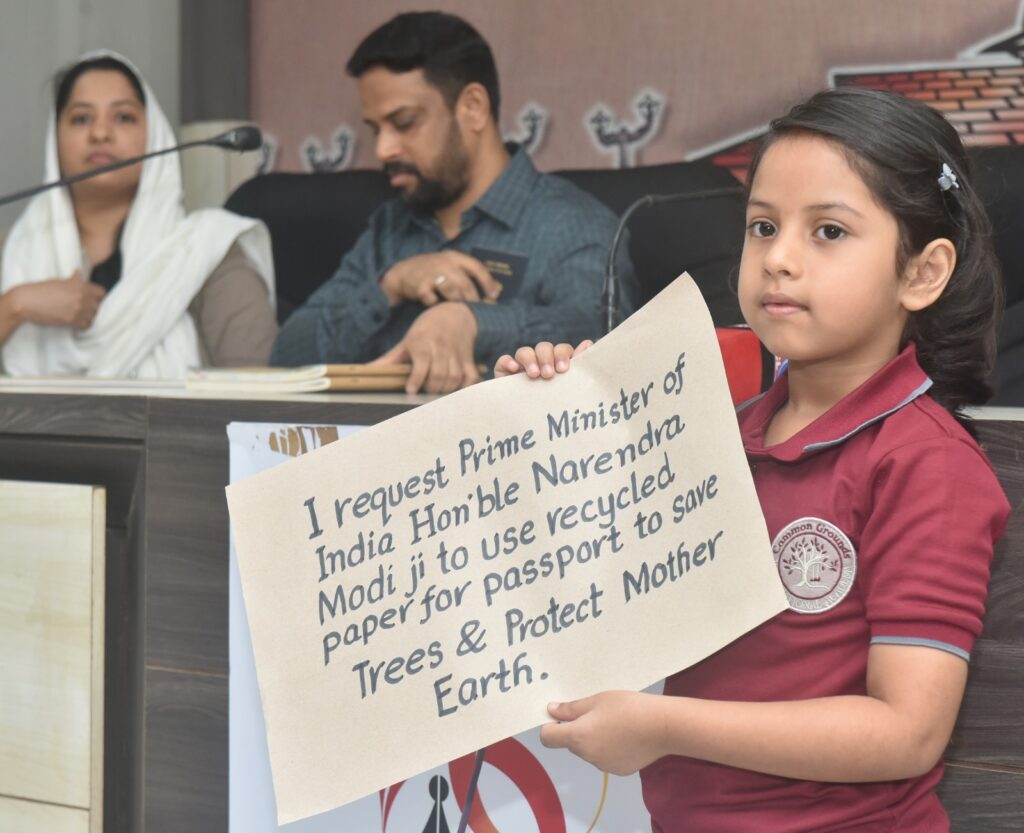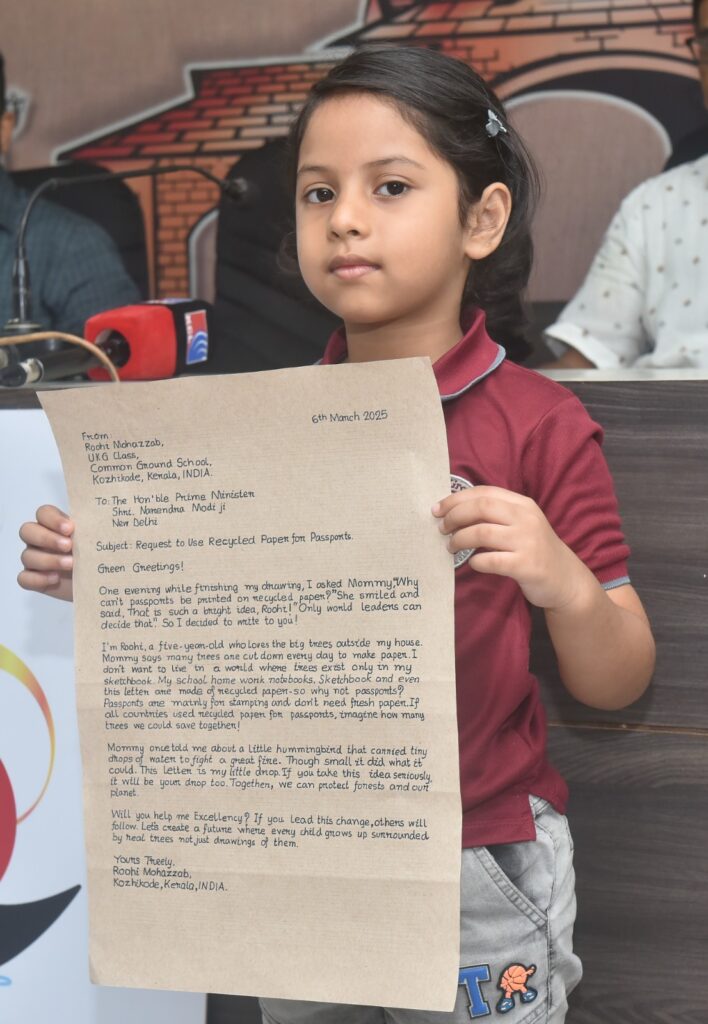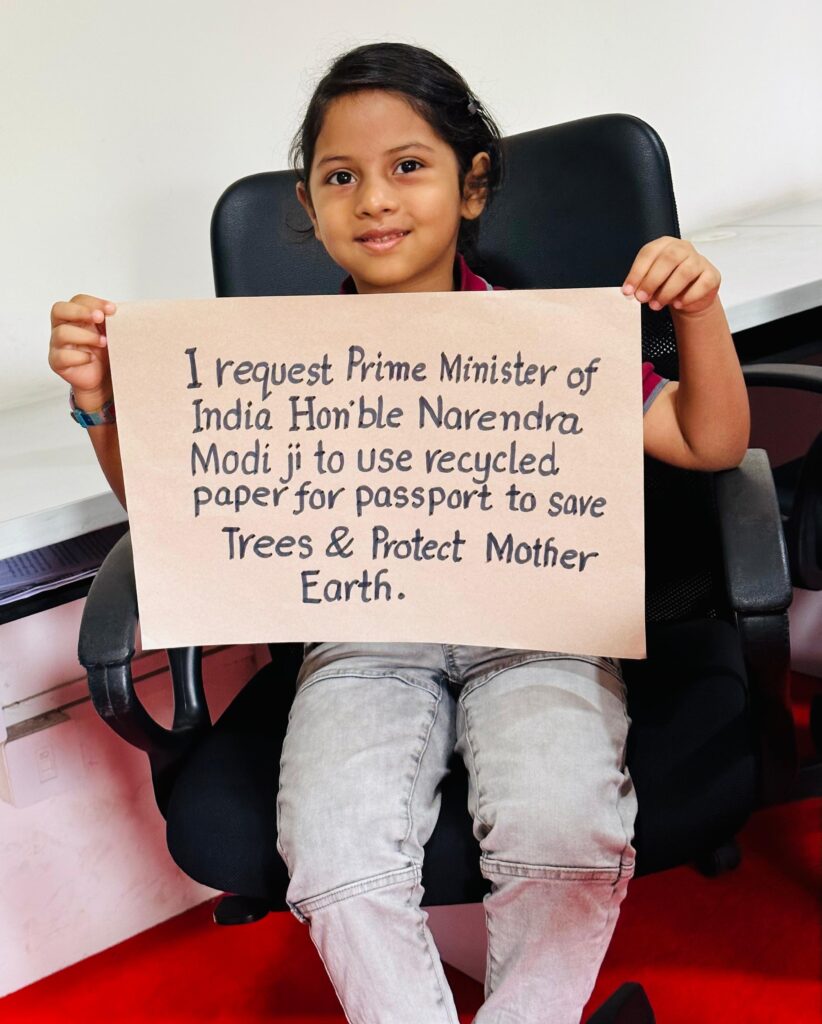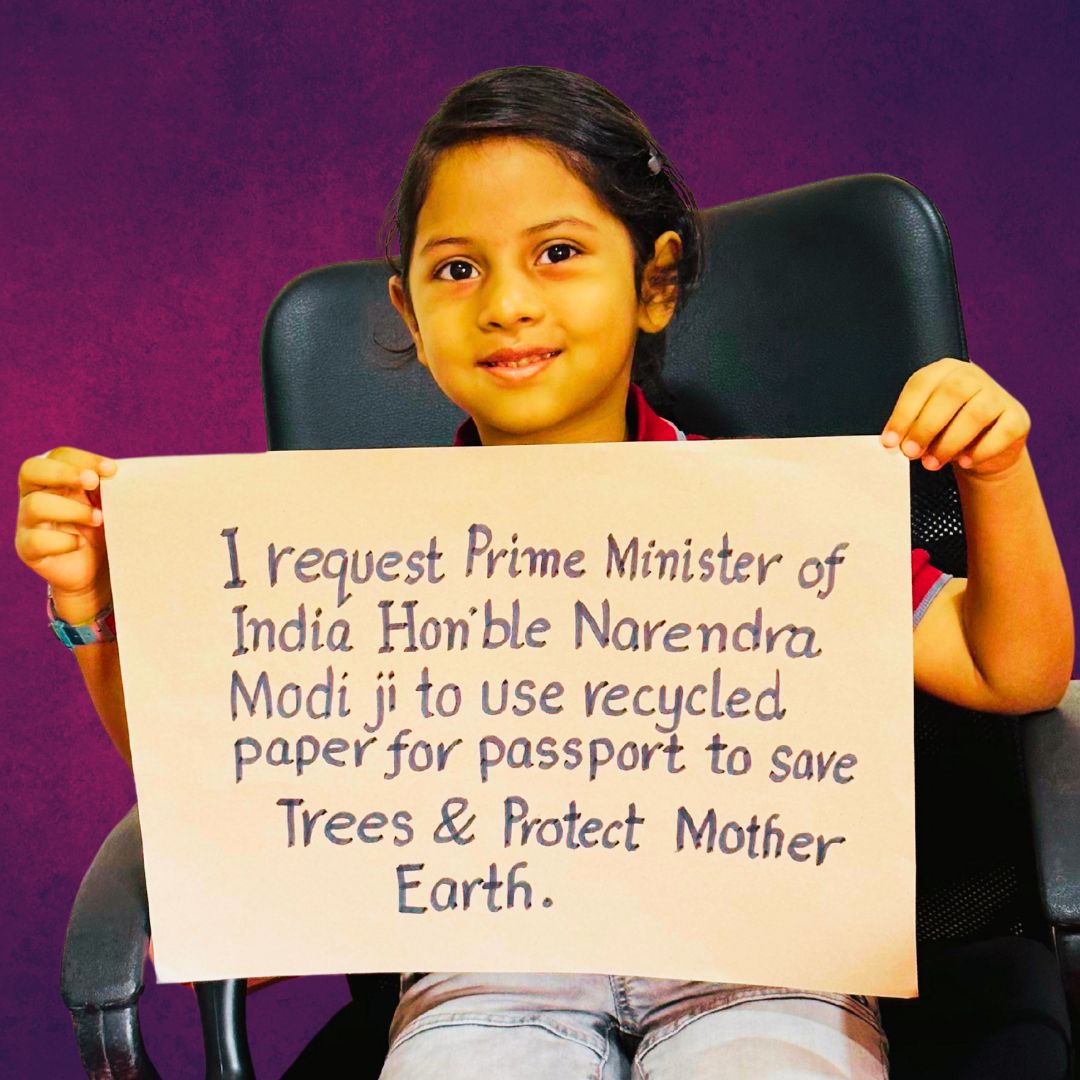At just five years old, Roohi Mohazzab has taken on a challenge that many adults might not even consider—revolutionising the way passports are made. In a heartfelt handwritten letter addressed to world leaders, including the Prime Minister of India and heads of 195 countries, Roohi has made a simple yet groundbreaking request: replace traditional passport paper with recycled paper to save trees and protect Mother Earth, the world’s first mother.
Her idea is both profound and practical—one that has the potential to position India as the first country in the world to introduce passports made from recycled paper, setting an inspiring precedent for global sustainability.

A Powerful Idea from a Young Mind
On March 7, at an event held at the Kozhikode Press Club in Kerala, Roohi’s initiative was unveiled to the world. The young environmentalist spoke about the alarming impact of paper consumption on deforestation and climate change. She emphasised how something as routine as a passport—issued in millions every year—could become a symbol of sustainability instead of environmental harm.
Roohi’s advocacy is built on a compelling statistic: In 2023 alone, India issued over 13 million passports, consuming approximately 468 metric tonnes of paper. On a global scale, nearly 100 million passports are issued annually, requiring around 3,600 metric tonnes of paper—equivalent to 86,400 trees being cut down. At this scale, switching to recycled paper passports could save thousands of trees every year, drastically reducing environmental damage.

The Environmental Cost of Paper & The Need for Change
The global demand for paper is a major contributor to deforestation. Each year, an estimated 15.3 billion trees are cut down, with 40% of harvested wood used for paper production. Producing just one tonne of paper requires 24 trees, and the process releases carbon emissions, worsening climate change. India’s paper consumption is set to reach 30 million tonnes by 2026-27, growing at a 6-7% annual rate. While digital alternatives are gaining traction, passports remain a physical necessity, making Roohi’s proposal a timely and impactful solution.
India has a unique opportunity to set a global precedent by becoming the first country to introduce recycled paper passports. The initiative aligns perfectly with the country’s sustainability goals, circular economy vision, and commitment to combating climate change. However, certain challenges arise when considering feasibility:
- Durability & Security: Passports require high-quality, tamper-proof materials. However, advancements in recycled security paper technology could ensure that passports maintain the same strength, durability, and safety features.
- Cost & Implementation: Recycling paper is less resource-intensive than producing new paper. Governments and security printing agencies could partner with sustainable paper manufacturers to ensure a smooth transition.
- Symbolic Impact: Beyond sustainability, this move would send a powerful message to the world—that India is leading climate-conscious policymaking at a global level.

The Logical Indian’s Perspective
Roohi Mohazzab’s campaign is not just about recycling paper—it’s about rethinking everyday choices that impact the planet. Her handwritten letters to world leaders symbolise the purity and urgency of her cause. Imagine a future where every passport issued represents not just an identity but a commitment to the planet. Roohi’s vision, if embraced, could make that future a reality.
At just five years old, she has already done something remarkable—she has started a global conversation about sustainability, responsibility, and the power of a simple idea.
At The Logical Indian, we stand firmly in support of such forward-thinking solutions that promote harmony between development and environmental stewardship. Roohi’s appeal is more than a plea to save trees—it is a call for a future where nations unite for a sustainable world.
The question now is: Will policymakers embrace the wisdom of a five-year-old and take a decisive step toward eco-friendly governance? Should India lead the way in introducing recycled-paper passports? Let us know your thoughts in the comments!












